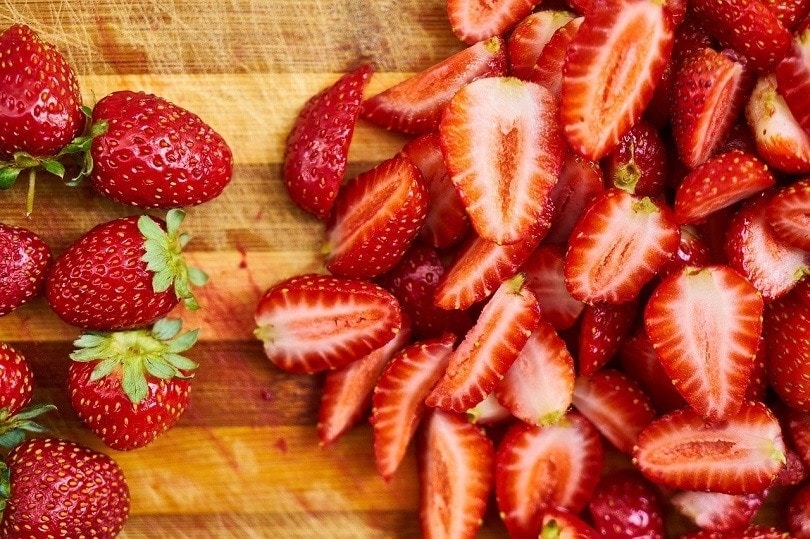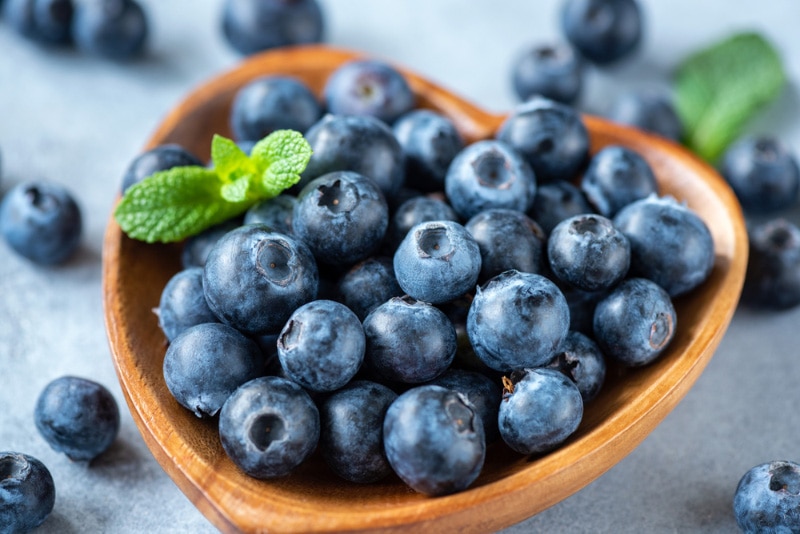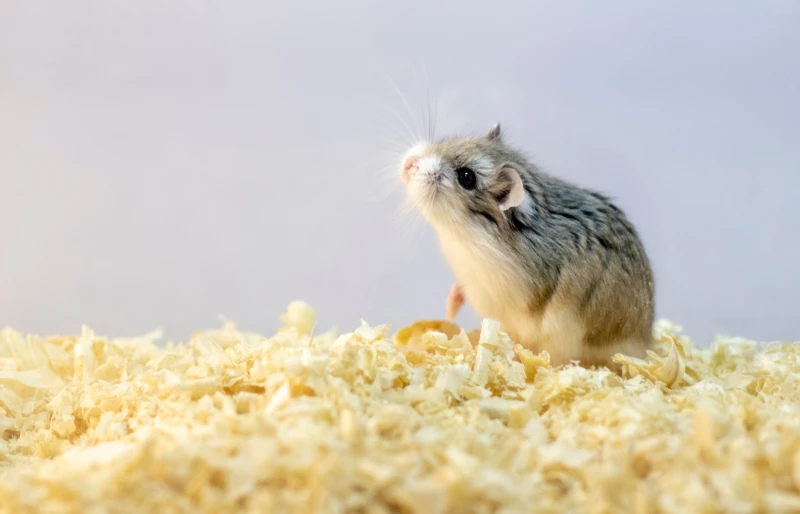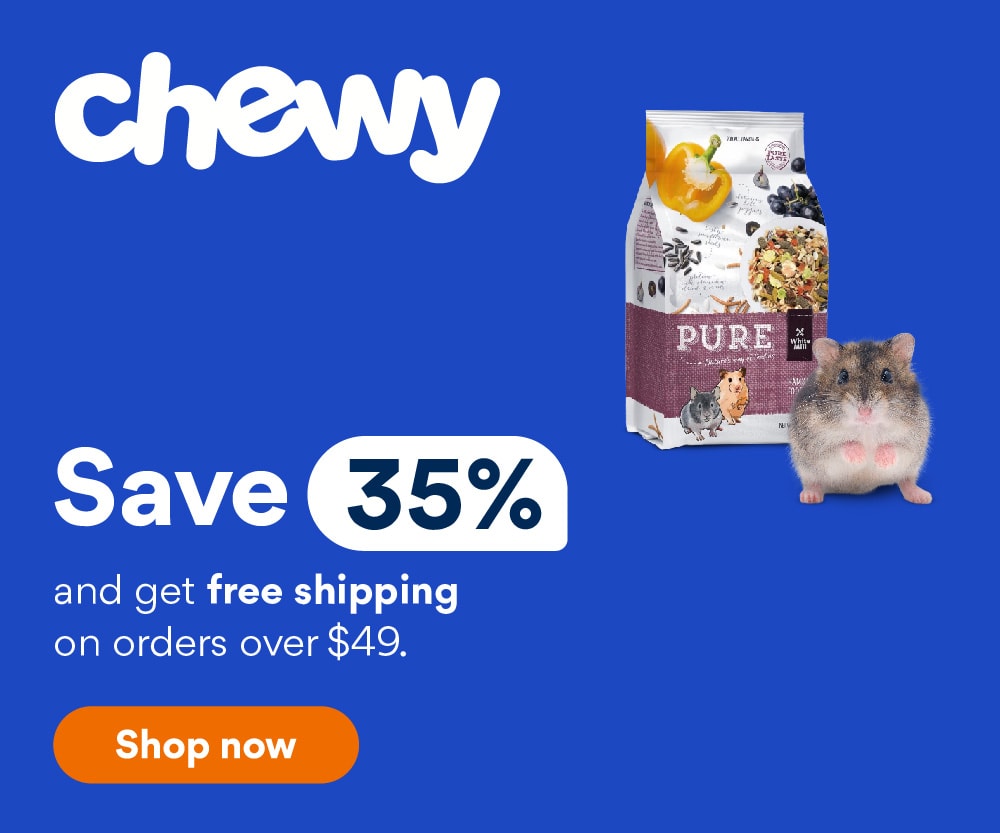Can Hamsters Eat Bread? Vet-Reviewed Proper Diet Tips & Facts
Updated on
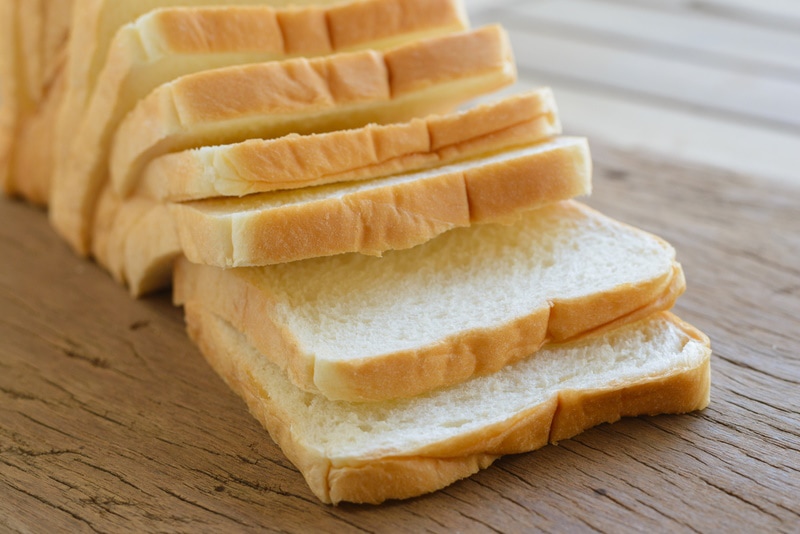
Click to Skip Ahead
Bread is one of the most delicious and versatile food items out there. Most of us eat it in some capacity, but can you share your daily toast with your pet hamster?
While hamsters can technically eat bread, they shouldn’t be given it too often. Bread has very little to offer hamsters nutritionally, so it is best to avoid giving it to your pet altogether. Read on to learn more.
What Is Bread?
In its simplest form, bread is prepared from the dough of flour and water. It is often fermented using yeast and is typically baked. Bread is one of the oldest human-made foods, becoming a significant part of our lives since the dawn of agriculture. It can be leavened by microbes (sourdough), chemicals (baking soda), yeast, or aeration.
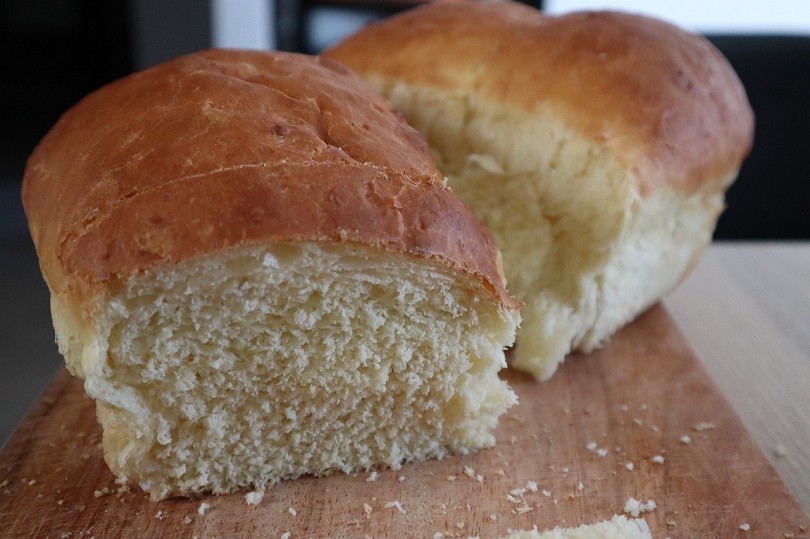
Can Hamsters Eat Bread?
Hamsters can generally consume very small portions of bread. Plain, whole wheat bread contains no ingredients that are toxic to hamsters. However, just because bread won’t harm your little buddy doesn’t mean it’s healthy for them.
What Are the Risks of Offering Bread to Hamsters?
Poor Nutritional Content
Bread is extremely high in carbohydrates and offers little nutritional value. Eating too many carbs and foods void of nutrition can cause things like obesity in your hamster.
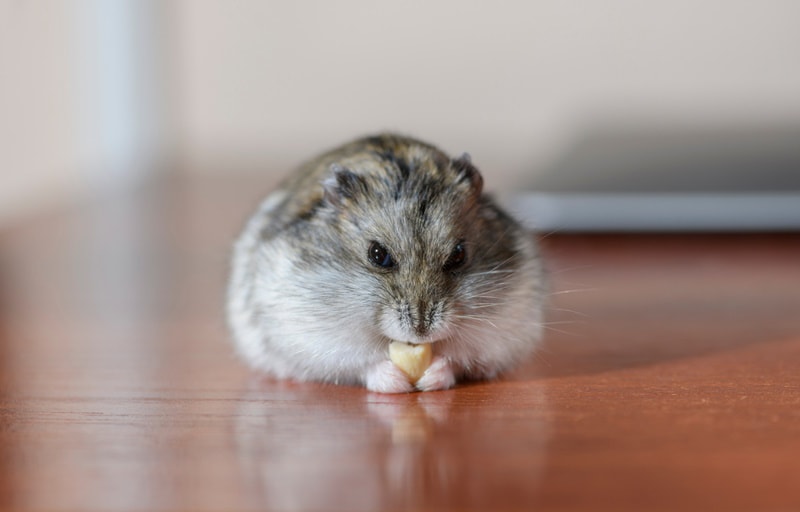
Inappropriate Ingredients
Some breads contain added ingredients and seasonings that aren’t good for hamsters. Additionally, preservatives and additives are sometimes added to bread products that can cause harm to your pet.
Some herbs and vegetables are dangerous for hamsters due to their high acidity or toxicity. Garlic and onions are commonly found in herbed bread and can be harmful for hamsters.
Cheek Pouch Impaction
Hamsters collect and hoard food in their lateral cheek pouches. These pouches can sometimes become impacted to the point that your pet cannot empty them; this will appear as swelling around the sides of the face. Soft foods or those that become sticky when wet can cause impaction especially in large amounts.
If you’ve ever taken too big of a bite of fresh bread, you know how sticky and hard to chew it can become. Bread can pose a cheek impaction risk to your hamster if you give your pet too much at once or if the bread is too soft.
If you think your hamster may have impacted cheek pouches, contact your vet as this does need veterinary treatment.
What Is the Proper Captive Hamster Diet?
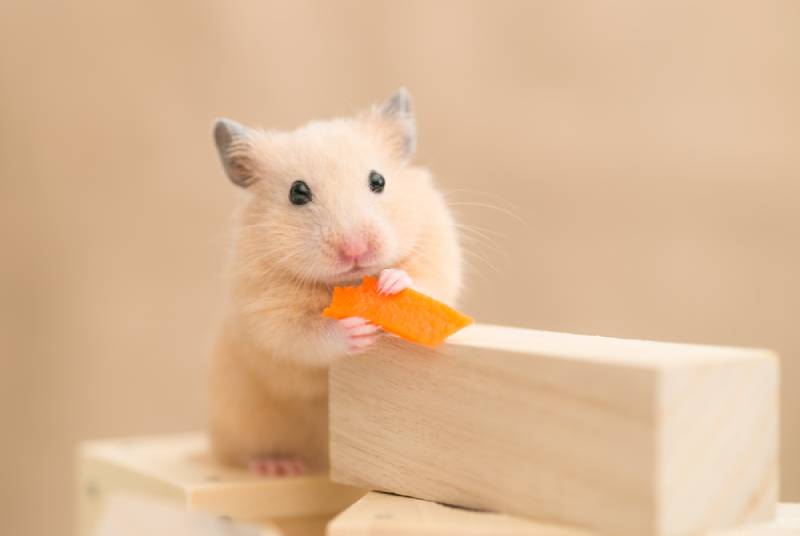
The proper diet is crucial to keeping your pet healthy and happy. The majority of a captive hamster’s diet should consist of commercially produced rodent pellets.
- 15% to 20% protein
- 35% to 40% carbohydrates
- 4% to 5% fats
- 5-10% crude fiber
Some owners feed their pets a mostly seeded diet; this is inappropriate. Seeds can supplement a pelleted diet or not be offered at all. Hamsters fed only seeds will have nutritional deficiencies that affect their health, and many are high in fat.
Hamsters can also eat certain human foods in moderation. They are unnecessary, so if offered, they should be given only as an occasional treat.
- Carrots
- Apples
- Peas
- Peppers
- Cucumbers
- Sugarless cereals or grains

Final Thoughts
A small piece of bread occasionally shouldn’t hurt your hamster, provided there are no ingredients in the bread that are toxic to your little buddy. It shouldn’t be offered too often, as bread has little to no nutritional value for your pet. Remember, domesticated hamsters must eat a pelleted diet to stay healthy and thrive as pets.
Featured Photo Credit: forstbreath, Shutterstock


